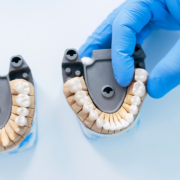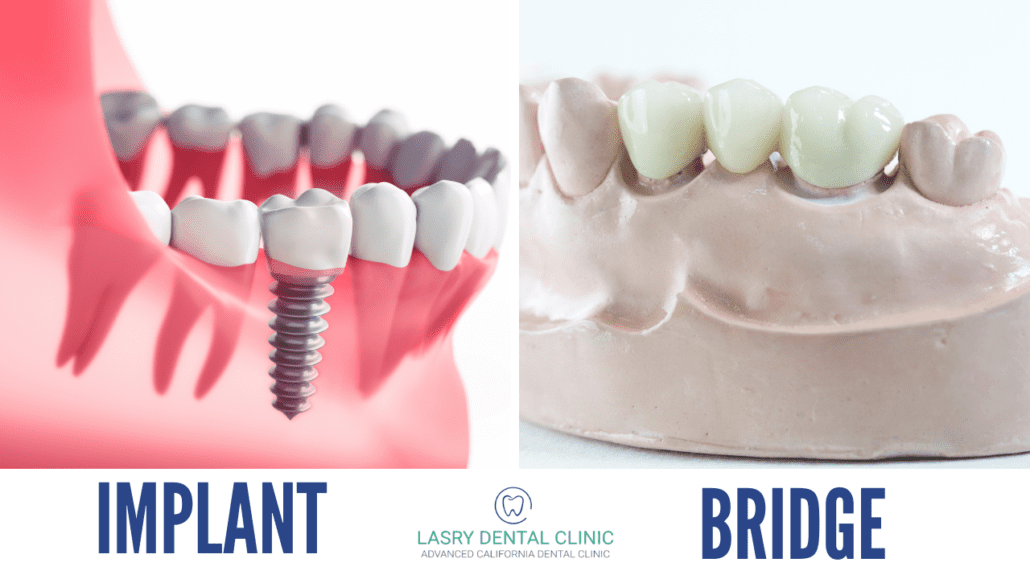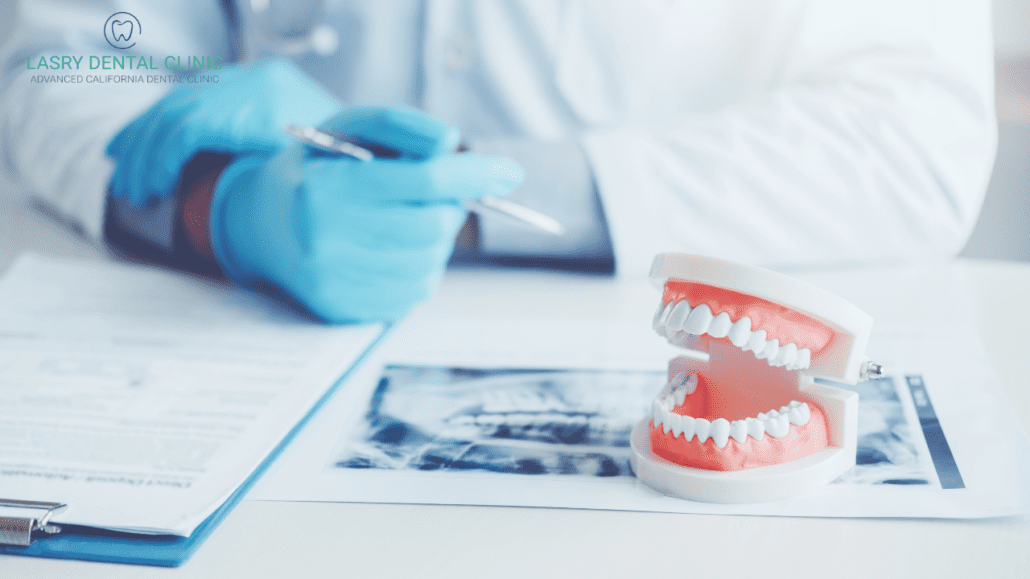Why Dental Bridges are the Perfect Solution for Missing Teeth: 3 Key Benefits
If missing teeth make you feel insecure, you’re not alone.
According to the National Institute of Dental and Craniofacial Research, adults ages 20 to 64 have an average of 25.5 remaining teeth out of 32. And 2.2% of that same age group have no remaining teeth at all.
Many people experience tooth loss due to age, decay, injury, or other factors. Luckily, there are several options for replacing missing teeth, including dental bridges.
Dental bridges are a great first-stage solution to replacing missing teeth. Let’s talk about the three most common benefits of bridges and some problems you might encounter.
RELATED: WHAT IS A FULL MOUTH RECONSTRUCTION?
3 IMMEDIATE Benefits You’ll Experience with Dental Bridges
In order to create a bridge, your dentist will have to make an impression on your teeth. From there, they’ll create a prosthetic tooth (or teeth if you have multiple missing in a row) which will anchor onto your adjacent real teeth using dental crowns. This creates a bridge over the gap, hence the name “dental bridge.”
Partial bridges are kind of like retainers you get after having braces. Except, instead of a wire bracket spanning across your teeth, this mouthpiece has ceramic crowns along the bracket to fill in the gap where your missing teeth are.
Bridges can give you a more natural-looking smile, and they can also make it easier to eat and speak. These are usually the most cost-effective solution over dental implants or veneers.
Here are the top 3 benefits you’ll enjoy the most, according to our patients!
Benefit #1: Restore Your Smile and Confidence
When you have missing teeth, it can affect your self-esteem, and you may feel hesitant to smile, speak, or even eat in public.
We all know how much insecurities can create a negative impact on our lives. It can prevent you from being present, showing up fully at work, or spending time with friends and family.
And while it may seem silly to some, having a full smile can do wonders to impact your self-assurance.
A dental bridge is a custom-made device anchored to your remaining teeth, filling the gaps and restoring your smile. With this bridge, you’ll feel better about speaking up at work, spending more time with loved ones, and overall seeing a vast improvement in your everyday life.
Benefit #2: Improve Your Ability to Eat and Speak
Another key benefit of dental bridges is that they can improve your ability to eat and speak. Missing teeth can make it difficult to chew food properly, and it can also affect your speech. For example, you might have a slight lisp, or you simply may not want to speak and risk exposing your shameful secret.
With a dental bridge, you can enjoy all your favorite foods without any discomfort, and you’ll be able to speak more clearly.
Benefit #3: Prevent Teeth Shifting and Bite Problems
It’s possible that your remaining teeth can shift and cause bite problems when there are gaps. This can lead to further dental issues, including gum disease, tooth decay, and even more tooth loss.
Dental bridges can prevent this by filling the gaps left by missing teeth and helping to maintain the alignment of your teeth and jaw.
RELATED: WHAT HAPPENS DURING A DENTAL IMPLANT PROCEDURE?
Dental Bridges vs. Implants
Dental bridges are a great option for those who want a non-surgical approach to replacing missing teeth. They are cost-effective and require less time in the dentist’s chair.
Implants, on the other hand, are a more permanent solution that requires surgery. However, they are more durable and long-lasting.
You can learn more about dental implants and their cost here.
RELATED: HOW TO GET OVER ANXIETY AT THE DENTIST OFFICE
Problems with Dental Bridges
While dental bridges might be the best option for most people, they do come with their own set of problems.
One of the most common issues with dental bridges is that they can put additional strain on adjacent teeth. This can cause them to weaken and become more prone to decay.
Additionally, dental bridges may need to be replaced after a certain amount of time, which can be costly and time-consuming.
For these reasons, it’s important to discuss all of your options with your dentist and choose the best solution for your individual needs.
RELATED: HOW CAN I FIX MY TEETH WITH NO MONEY?
Dental Bridges Cost Without Insurance
The prices for bridges can vary depending on several factors, including the dentist’s location, the materials used, and the complexity of the procedure. Without insurance, a dental bridge can cost anywhere from $500 to $1,500 per tooth.
However, it’s important to remember that the cost of a dental bridge is a one-time expense, and it can provide a long-lasting solution for missing teeth. If you are concerned about the price, talk to your dentist about financing options or payment plans to help make the procedure more affordable.
RELATED: HOW MUCH DOES IT COST TO GO TO THE DENTIST WITHOUT INSURANCE?
FAQS
Do Dental Bridges Come Out?
Dental bridges are designed to be a permanent solution for missing teeth, so they should not come out if they are properly placed and cared for.
However, in some cases, dental bridges can become loose or fall out due to factors such as:
If your dental bridge comes out, contact your dentist as soon as possible to see when you can have it reattached or replaced.
Do Dental Bridges Hurt?
Dental bridge placement is typically not painful. However, some patients may experience minor discomfort or sensitivity after the process, which can usually be managed with over-the-counter pain relievers.
If you experience significant pain or discomfort after getting a dental bridge, contact your dentist for evaluation.
How Long Do Dental Bridges Last?
On average, dental bridges can last anywhere from 5 to 15 years. However, the lifespan of a dental bridge depends on various factors, including:
- Materials used
- Your oral hygiene habits
- Amount of wear and tear the bridge is subjected to
Still, with proper care and maintenance, they may last even longer. To maximize your dental bridge’s lifespan, brush and floss regularly, avoid biting down on hard objects, and take advantage of your free bi-annual teeth cleanings.








Leave a Reply
Want to join the discussion?Feel free to contribute!